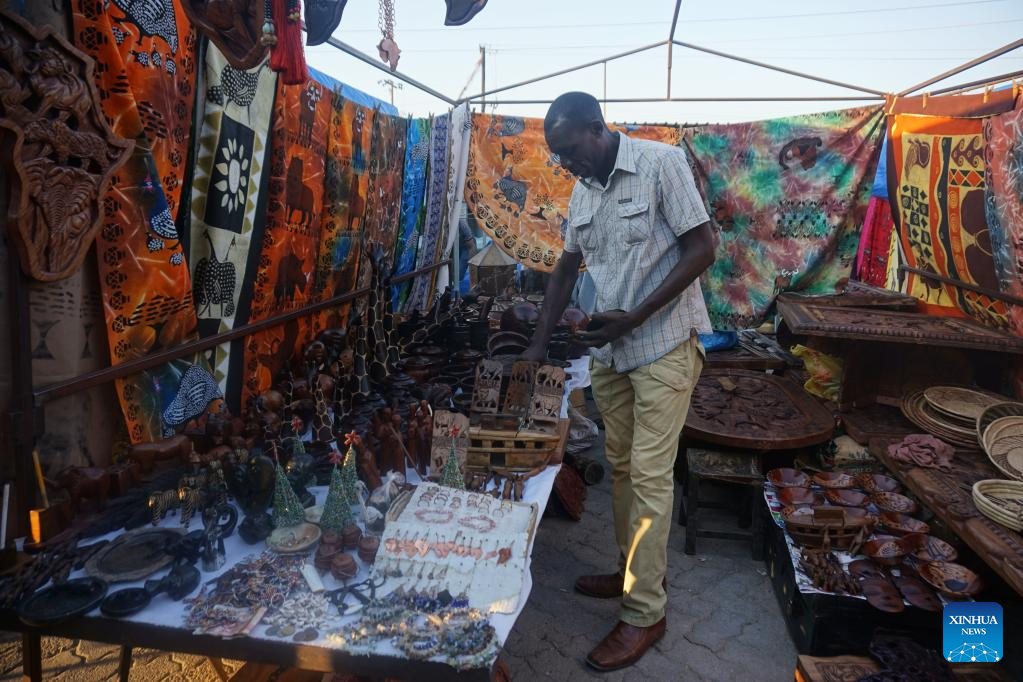
This photo taken on June 17, 2023 shows a man looking at handcrafted items on display at a stand in Lusaka, Zambia. (Photo by Lillian Banda/Xinhua)
LUSAKA, June 23 (Xinhua) -- Over the years, crafts-making has proved a valuable opportunity for Zambia's rural dwellers to earn more and improve their quality of life.
With the rise of both local and international tourism and the growing demand for handmade products, people in rural Zambia are finding success in making and selling a wide variety of handcrafted items.
Crafts-making not only helps to improve the standard of living but also provides greater financial security for people from these settings.
It requires minimal startup capital, as raw materials such as clay, wood and natural fibers used to make items are in most cases readily available.
"I use reeds from swamps and riverbanks near my home to make reed mats," explained Mate Simataa, 30, who lives in the outskirts of Mongu, a district in western Zambia.
He has been making reed mats for about five years and the venture has become his mainstay, Simataa said.
"Initially, I was making and selling reed mats to supplement my income from other sources. I later decided to concentrate on this business because it proved to be worth doing," Simataa told Xinhua in Lusaka, Zambia's capital, where he was selling his merchandise.
Bernard Banda, 31, makes baskets and hats in Luangwa district, and sells the items around Luangwa Bridge, a famous tourist stop.
"I have been making baskets and hats for more than 10 years. I find my work very fulfilling because it involves creating and selling things that have a lot to say about our cultures and traditions," he said.
By selling handicrafts, rural dwellers can earn some money without relying solely on agriculture, the main source of income for the majority of people in rural Zambia.
Kanyata Muyunda, a 44-year-old farmer based in Mongu district, turned to making traditional stools to cushion losses from flooding that washed away all his investment in rice production in the last farming season.
"I have managed to raise enough money to provide for my children's needs, including ensuring that they stay in school, just from making stools," he said while holding one of the stools he made from wood and discarded animal skin.
Beyond being an expression of culture and tradition and a means of sustenance, crafts making is increasing economic prospects of poor and vulnerable rural communities.
According to Muyeya Nambo, 38, a Lusaka-based handicraft reseller specialized in traditional musical drums and some curios, rural handicrafts makers contribute to increased economic activities in their respective communities.
Rural communities with a larger number of craftmakers are more vibrant because of increased incomes from crafts-making, he said.
"Tourism thrives in places where there are a lot of handicrafts makers and items," Nambo said. "That also helps to boost other businesses, making a place more vibrant economically." ■
